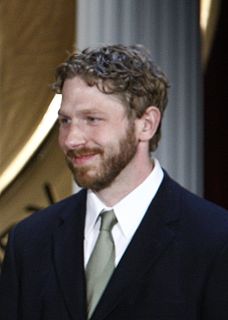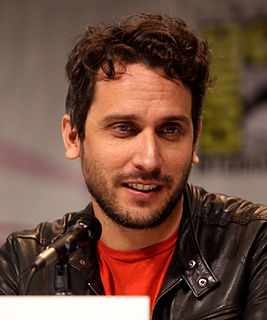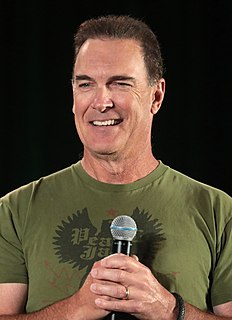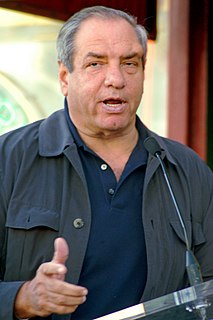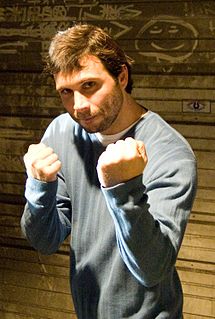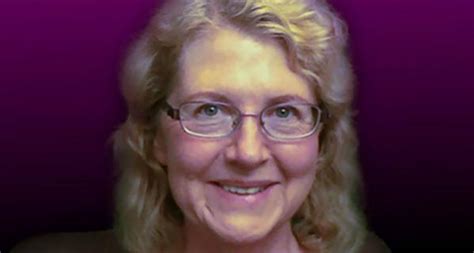A Quote by Aaron Ehasz
We have a writing process that's very much you try to create the character in a complicated way and then you let the story lead you to discovering who the character is in a natural way.
Quote Topics
Related Quotes
When I'm writing, I try to have the mask of my character on as I'm walking through the world. When I'm not at my desk, the rest of the time, I try to stay in that character and see the world the way that character would It's almost like method acting in a way — keeping the character close the way the actor keeps a script close and always tries to be in character.
What I try to do is write from the inside out. I really try to jump into the world of the film and the characters, try to imagine myself in that world rather than imagining it as a film I'm watching onscreen. Sometimes, that means I'm discovering things the way the audience will, with character and story.
There are a couple of strategies for writing about an absence or writing about a loss. One can create the person that was lost, develop the character of the fiancee. There's another strategy that one can employ, maybe riskier... Make the reader suffer the loss of the character in a more literal way.
A dream inspiring a story is different than placing a description of a dream in a story. When you describe a character's dream, it has to be sharper than reality in some way, and more meaningful. It has to somehow speak to plot, character, and all the rest. If you're writing something fantastical, it can be a really deadly choice because your story already has elements that can seem dreamlike.
'Seize the Story' takes readers all the way through the process of writing fiction, from beginning to end. Every element, from dialogue to setting, plotting to character creation, is laid out and illustrated with examples. But the tone of the book is not that of a dry writing manual - it's definitely written for teenagers.
